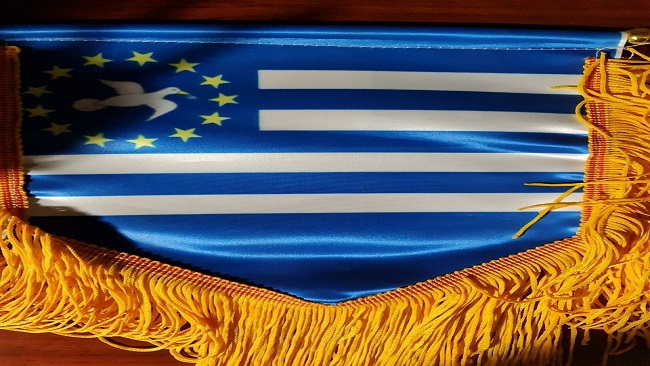Southern Cameroons Crisis will not be resolved in Yaoundé and risks creating a generation of disenfranchised, displaced people nursing a grievance
Cameroon is an amalgamation of former French and British territories combined into a single country in 1961. The North-West and South-West Regions (NWSW) of Cameroon are home to most of the country’s English-speaking population (Anglophones), roughly 20% of the total population. The Anglophone Conflict stems from 2016 when Anglophone teachers and lawyers mounted protests demanding better representation in Cameroon’s legal and educational systems. What started as peaceful protests quickly turned violent as demonstrators clashed with security personnel. Cameroon President Paul Biya’s response included deploying U.S. trained special forces[2], curfews, and implementing regional communications blackouts. In 2017, Anglophone protestors switched tactics from wanting increased representation to demanding an independent state. On October 1, 2017, Anglophone separationists unilaterally claimed independence from Cameroon creating the Federal Republic of Ambazonia which would be led by an interim government.
Ambazonia is now in quasi-civil war albeit with limited recognition from President Biya in Cameroon’s capital Yaoundé. He maintains that the conflict is a terrorist/criminal issue, which he promises to resolve through bureaucratic maneuvering and force[3]. The struggle continues to grow deadlier, with more improvised explosive device attacks taking place in the first five months of 2021 than all other years of the conflict combined[4]. The situation continues to deteriorate with separatists beginning kidnap for ransom operations and the Cameroonian state conducting cross border operations of questionable legality into Nigeria. The Cameroonian government’s harsh tactics against its citizenry prompted allegations of human rights abuses.
The magnitude of the crisis and numerous filmed events obtained by international aid organizations lends strong credence to the allegations. As a result of the abuses, the U.S. cut military aid to Cameroon in 2019[5]. The U.S. is in a difficult position as Cameroon is a key ally against Islamist terrorism in the region, through their contribution to the Multi-national Joint Task Force and allowing U.S. forces to operate from bases in the country[6].
Little is likely to be resolved in the immediate future. The government is unable to claim victory, and the separatists have not gained and held ground, leading to in-fighting[7]. The separatists seek to change their fortunes through an alliance with Nigerian separatists and the purchase of weapons from foreign powers[8]. Another element to consider is President Biya. At 89, Biya is the oldest elected official on the continent and the second longest serving. Many, if not most, Cameroonians do not know life without Biya. He has no intention of ceding power, and more importantly does not have any clear succession plans. Disorganization from Biya’s hospitalization, death, or cessation of power may give Amabazonia the relief it needs to find better footing.
For a country battling Islamist terrorists in the north and separatists in the south, the death of an autocrat may be the final straw. The U.S. would be well advised to consider response options to the Anglophone crisis beyond advocating for human rights. If the U.S. continues to ignore the Anglophone crisis and does not develop solid response options, it risks ceding regional leadership and allowing the problem to spiral. Considering the NWSW regions’ coastline and other natural resources, the area will draw international attention for cocoa, oil, or an Atlantic Port. In 2019, China wrote off a substantial portion of Cameroon’s debt[9], and is building the region’s largest deep-water port[10]. China is presumably ready to and willing to fill any partnership void caused by U.S. inaction.
There are several possible outcomes. The first, already underway, is the continued stagnation of the crisis. With neither side moving towards peace and conflict increasing, the growth of criminal activity, extremism, and continued human rights abuses is likely. Combined with other regional instability and increased piracy in the Gulf of Guinea, the equivalent of a West coast Somalia is an unattractive prospect.
Second, should the crisis escalate, and Cameroon prove ineffective at containing the situation, say in the case of Biya’s death, would regional intervention be justified? Is the U.S. prepared or able to, with Leahy Law requirements, support regional action to stabilize the area? How would the U.S. react to Nigeria retaking the Bakassi peninsula under the premise of a responsibility to protect intervention?
Given the vast uncertainty facing Cameroon post-Biya, the U.S. and international community should not be shocked by renewed claims of Ambazonian independence. Should Anglophone Cameroonians coalesce, they may prove more capable at maintaining security in the region than Yaoundé. The Anglophone Cameroonians would then have a solid footing for seeking recognition, which could prompt additional calls for succession from groups like the Movement for Emancipation of the Niger Delta in neighboring Nigeria. As evidenced by recent events, a country seeking de jure recognition has the potential to disrupt the international order, in this case that could occur in an already unstable region which could prove disastrous for U.S. regional efforts.
The current situation is the culmination of bad international politics in the 1960’s which amalgamated peoples regardless of their language and culture. The crisis will not be resolved as is and risks creating a generation of disenfranchised, displaced people nursing a grievance.
Culled from realcleardefense





